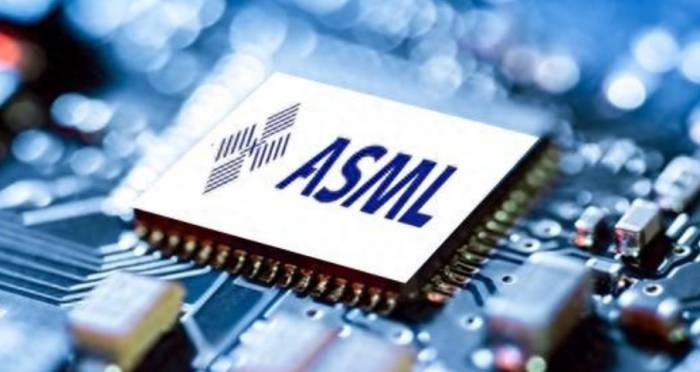ASML's China Exports of Lithography Machines Surge 19-Fold
Can you believe that the amount of lithography equipment we imported from the Netherlands has actually surged by 1850%? Isn't it true that the US, Japan, and the Netherlands have already imposed a ban on lithography equipment? What's going on here? And why do we need so many lithography machines?
Recently, the China International Import Expo was held in Shanghai, with over 3400 companies from 64 countries around the world gathering in the city. All the well-known enterprises in the world that could come, did come, and of course, the global lithography equipment giant, ASML from the Netherlands, was not absent.
The President of ASML China stated that the Shanghai Import Expo provides an important platform for global companies, and ASML has greatly benefited from it. Not only can it showcase technological products from various countries, but it also strengthens exchanges between them.
He also mentioned that, unlike other foreign companies that are laying off staff or withdrawing from China, ASML recruited more than 200 people in China in 2023, and this number will continue to grow.
If we compare this to previous statements by ASML's CEO, Peter Wennink, who accused China of developing lithography equipment that disrupts the global industrial chain, it's clear to anyone that ASML's current stance is an attempt to appease China and recover its losses in our country.
Additionally, they have implicitly acknowledged that China will have its own high-end lithography equipment in the future and will require some components. Therefore, ASML wants to seize the Chinese components market in advance. If the US doesn't allow me to export, then I'll just build a factory to produce directly and bypass the restrictions.
According to our customs data, ASML's exports to us increased by 30% in October, and in September, it grew by 1850% year-on-year. In July and August, the growth rates were 1677% and 343%, respectively.
Furthermore, data shows that in the third quarter of this year, China's revenue share of ASML's global business reached 46%, and it is expected that China's share of ASML's global revenue for the whole year will exceed 20%.
It's important to note that this is the data under the backdrop of the US blocking high-end chip equipment to China.

Why has there been such a surge?Due to the fact that a large number of Chinese companies want to stockpile ASML's lithography equipment before the Dutch export controls take effect, in order to cope with the risks of supply shortages and rising prices.
This explosive growth reflects the massive demand for advanced process chips and also reflects the current tense situation in the global semiconductor industry.
Of course, ASML does not want China to develop its own lithography equipment, so ASML has not fully followed the United States' footsteps. Moreover, ASML's executives are actively optimistic about ASML's development in China in the next two years, which clearly does not take the US-Japan-Dutch semiconductor ban seriously.
This can better reflect ASML's desire for the Chinese market and its inability to give up. ASML has taken practical actions to slap the United States in the face. If the United States really restricts exports to China, then ASML can only drink the northwest wind.
For a company and the so-called liberal economy, having no money is impossible. In the current economic downturn, survival is the key.
Like South Korea's Samsung, which once took pride in its storage chips, after restrictions, the inventory piled up like a mountain, and profits fell by 95% in the first half of the year, while we have made breakthroughs and no longer need them.
The Netherlands can naturally see these, as the global shortage of high-end chips intensifies. If we cannot continue to obtain high-process chip supplies, we will have to increase our support for the domestic chip industry.
This move will further accelerate China's independent research and development and production capacity in the chip field. If ASML does not handle its relationship with China well, it is very likely to follow in Samsung's footsteps.
The United States' sanctions have also triggered distrust and vigilance among other allies, further weakening the United States' position and having a negative impact on the global economy and international relations.
Once, the United States supported Samsung and other Korean companies to curb the rise of Japanese semiconductors. Now, for its own interests, it is sacrificing Korean semiconductors. Who can guarantee that ASML will not be next in the future?In this civilized era where cooperation and mutual benefit are essential for problem-solving, we naturally hope that ASML can make rational choices in line with the interests of both parties based on their own interests, rather than blindly following the United States. Such a simple truth should be clear to ASML, don't you think?
Post Comment